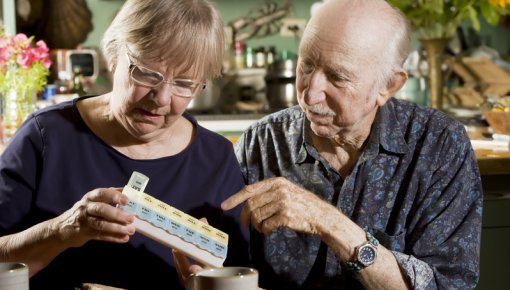Abdelhamid AS, Brown TJ, Brainard JS et al. Omega-3 fatty acids for the primary and secondary prevention of cardiovascular disease. Cochrane Database Syst Rev 2018; (7): CD003177.
Bonati LH, Kakkos S, Berkefeld J et al. European Stroke Organisation guideline on endarterectomy and stenting for carotid artery stenosis. Eur Stroke J 2021; 6(2): I.
Deutsche Gesellschaft für Allgemeinmedizin und Familienmedizin (DEGAM). Schlaganfall (S3-Leitlinie). AWMF-Registernr.: 053-011. 2020.
Deutsche Gesellschaft für Neurologie (DGN), Deutsche Schlaganfall-Gesellschaft (DSG). Sekundärprophylaxe ischämischer Schlaganfall und transitorische ischämische Attacke – Teil 1: Plättchenhemmer, Vorhofflimmern, Hypercholesterinämie und Hypertonie (S2k-Leitlinie). AWMF-Registernr.: 030-133. 2022.
Deutsche Gesellschaft für Neurologie (DGN), Deutsche Schlaganfall-Gesellschaft (DSG). Sekundärprophylaxe ischämischer Schlaganfall und transitorische ischämische Attacke – Teil 2: Lebensstil, arterielle Stenosen, andere Antithrombotika-Indikationen, Hormone, Diabetes mellitus, Schlafapnoe (S2k-Leitlinie). AWMF-Registernr.: 030-143. 2022.
Heuschmann PU, Busse O, Wagner M et al. Schlaganfallhäufigkeit und Versorgung von Schlaganfallpatienten in Deutschland. Akt Neurol 2010; 37: 333-340.
Hooper L, Al-Khudairy L, Abdelhamid AS et al. Omega-6 fats for the primary and secondary prevention of cardiovascular disease. Cochrane Database Syst Rev 2018; (7): CD011094.
Institute for Quality and Efficiency in Health Care (IQWiG, Germany). Stents for the treatment of intracranial artery stenosis: Rapid report; Commission N14-01. 2014.
Koskinas KC, Siontis GCM, Piccolo R et al. Effect of statins and non-statin LDL-lowering medications on cardiovascular outcomes in secondary prevention: a meta-analysis of randomized trials. Eur Heart J 2018; 39(14): 1172-1180.
Naqvi IA, Kamal AK, Rehman H. Multiple versus fewer antiplatelet agents for preventing early recurrence after ischaemic stroke or transient ischaemic attack. Cochrane Database Syst Rev 2020; (8): CD009716.
Paciaroni M, Ince B, Hu B et al. Benefits and Risks of Clopidogrel vs. Aspirin Monotherapy after Recent Ischemic Stroke: A Systematic Review and Meta-Analysis. Cardiovasc Ther 2019: 1607181.
Tramacere I, Boncoraglio GB, Banzi R et al. Comparison of statins for secondary prevention in patients with ischemic stroke or transient ischemic attack: a systematic review and network meta-analysis. BMC Med 2019; 17(1): 67.
Wang T, Luo J, Wang X et al. Endovascular therapy versus medical treatment for symptomatic intracranial artery stenosis. Cochrane Database Syst Rev 2020; (8): CD013267.
Zonneveld TP, Richard E, Vergouwen MD et al. Blood pressure-lowering treatment for preventing recurrent stroke, major vascular events, and dementia in patients with a history of stroke or transient ischaemic attack. Cochrane Database Syst Rev 2018; (7): CD007858.
IQWiG health information is written with the aim of helping people understand the advantages and disadvantages of the main treatment options and health care services.
Because IQWiG is a German institute, some of the information provided here is specific to the German health care system. The suitability of any of the described options in an individual case can be determined by talking to a doctor. informedhealth.org can provide support for talks with doctors and other medical professionals, but cannot replace them. We do not offer individual consultations.
Our information is based on the results of good-quality studies. It is written by a team of health care professionals, scientists and editors, and reviewed by external experts. You can find a detailed description of how our health information is produced and updated in our methods.

